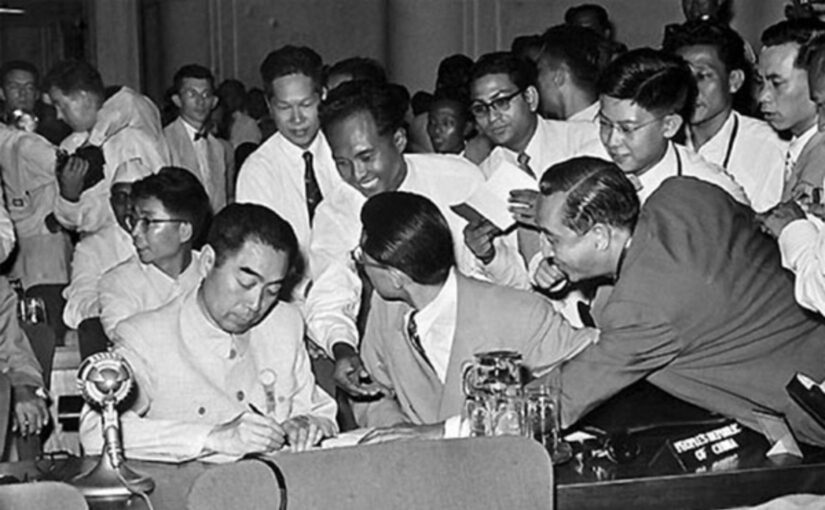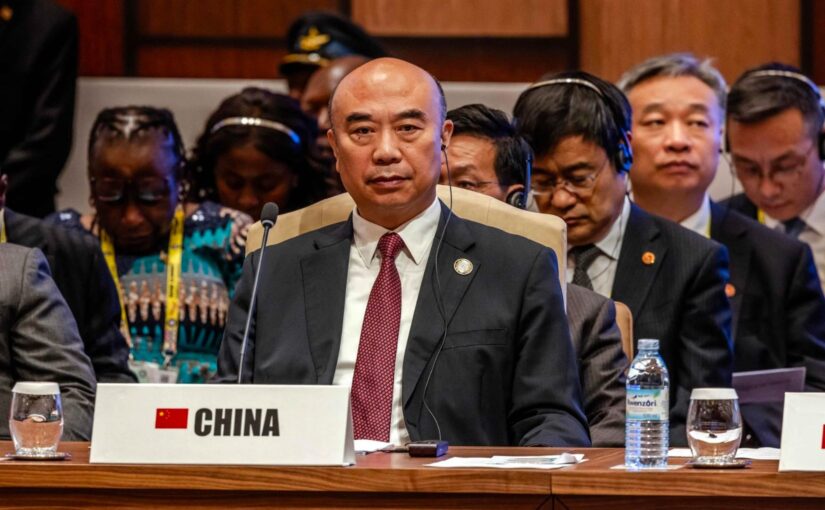The following article, originally published in Xinhua on 21 April 2024 to coincide with Chinese Foreign Minister Wang Yi’s visit to Indonesia, explores the fascinating history of the historic Asian-African Conference, held in Bandung in 1955, and the significance of the Bandung Spirit for the world today.
The Bandung Conference marked “the first time that the countries of the Global South united to oppose imperialism and colonialism in defense of their sovereign rights and a more equitable world.” The significance of this united front against imperialism resonated across the world, including with the great African-American freedom fighter Malcolm X, who said in his Message to the Grassroots that the attendees of the conference “began to recognise who their enemy was” and formed a common front against colonialism and imperialism on this basis.
At Bandung all the nations came together. Their were dark nations from Africa and Asia. Some of them were Buddhists. Some of them were Muslim. Some of them were Christians. Some of them were Confucianists; some were atheists. Despite their religious differences, they came together. Some were communists; some were socialists; some were capitalists. Despite their economic and political differences, they came together.
Opening the conference, Indonesian President Sukarno stated:
Wherever, whenever and however it appears, colonialism is an evil thing, and it must be eradicated from the earth. I hope our conference will give evidence of the fact that we Asian and African leaders understand that Asia and Africa can prosper only when they are united, and that even the safety of the world at large cannot be safeguarded without a united Asia-Africa.
The article notes that Chinese Premier Zhou Enlai played a key role in the conference, proposing the Five Principles of Peaceful Coexistence, which became “a crucial component of the Bandung Spirit and were later accepted by the vast majority of countries worldwide as the basic norms of international relations and the basic principles of international law.”
The Bandung Spirit remains as relevant as ever, in a world where the imperialist powers are still seeking to preserve their hegemony and suppress the development of the Global South. The article cites a 2015 speech by President Xi Jinping, Carry Forward the Bandung Spirit for Win-win Cooperation as follows:
We must carry forward the Bandung Spirit by enriching it with new elements consistent with changing times, by pushing for a new type of international relations featuring win-win cooperation, by promoting a more just and equitable international order and system.
The Bandung Spirit continues to inform China’s foreign policy and its approach to the united front against imperialism and for development. The article concludes:
Today, almost seven decades after the conference, the Bandung Spirit carries on, inspiring countries in the Global South to embark on a new path of common development through win-win cooperation under the framework of the Belt and Road Initiative and other platforms.
“Few cities in history have won so many hearts and minds as Bandung,” the late Honorary President of the People’s Republic of China, Soong Ching Ling, commented on the Indonesian city.
The historic Asian-African Conference, also known as the Bandung Conference, was held in the city on April 18, 1955. It marked the first time that the countries of the Global South united to oppose imperialism and colonialism in defense of their sovereign rights and a more equitable world.
Continue reading 69 years on, the Bandung Spirit remains alive in the Global South

